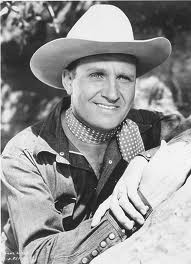When I was about eight or nine years old, my dad took me on a “date” to Tioga, Texas. It’s a town of about 1.2 miles and a population of about 810. It is also the official birthplace of Gene Autry, the famous “Singing cowboy.”
But Tioga, Texas and Gene Autry aren’t actually what I remember best about that date.
I remember riding in my dad’s Ford F-250 down a back road as my dad introduced me to country music.
He turned up the station and said, “See, with country music, you can sing about anything. Your best friend, your dog, your tractor.”
I laughed at the silly idea of singing about anything. But, starting then, he planted his love for the genre in my heart. It was a seed that would grow into a life long love of country music.

Lately, after three years of studying English literature, I’ve begun to appreciate country music for even more than it’s range of subjects. As a writer, I’ve realized the ingenuity that goes into many country songs. Many of them, I believe, are pure poetry.
I won’t go into my list of country music songs that contain aporia or enellage or other literary tropes and schemes. Rather, here are the top five writing rules that I’ve learned from listening to great country songs over the years:
1) Tell a story: This one may seem obvious. After all, most of us write to tell stories. But I think sometimes we can get too bogged down in our desire to create a metaphor or a moral, thereby forgetting to make stuff happen. Country music, more than any other genre, does a fantastic job of creating the song around an intriguing story.
2) Don’t play your best card first: There’s a song by Lee Brice called “I Drive Your Truck.” It’s a very sad song about a young man mourning the loss of his brother. But you wouldn’t kn
ow that unless you really paid attention and listened to the whole song. Its chorus creates the intrigue and you have to figure our what he’s talking about by listening. In the same way, good writing draws you in slowly (but not too slowly), building up to a powerful climax.
3) Know your audience: I know. Not everyone LOVES country music. And, most likely, not everyone will love what you write. You have to find your audience and market to that audience. This was something I had to learn as I began marketing Whispers of Nightfall. Sometimes your story isn’t for everyone. Just like songs about shot guns and Mama’s cooking aren’t for everyone. But once you know your audience, you can write about the things they really care about. A Brad Paisley song describes it as “Your life in a song.”

Brad Paisley, in my opinion one of the most “poetic” of country singers (photo cred. Google Images)
4) It’s how you say it, not what you say: Obviously, your content matters (see above). But if you think about it, every story that can be told has already been told. It’s up to every writer to figure out how he or she will tell it. Whether it’s the point-of-view you choose, the elegance of your prose, or the dynamism of your voice, you can make (almost) anything engaging. Just think about Jason Aldean’s song about his Big Green Tractor.
5) Write what you love: This one goes back to my dad’s first praise of country music. If you can sing about anything, you can write about anything. If you have a story you really want to tell, don’t worry about #3 yet; don’t let what you think other people will think stop you. Just write what stirs your heart. Write what makes you sing.
